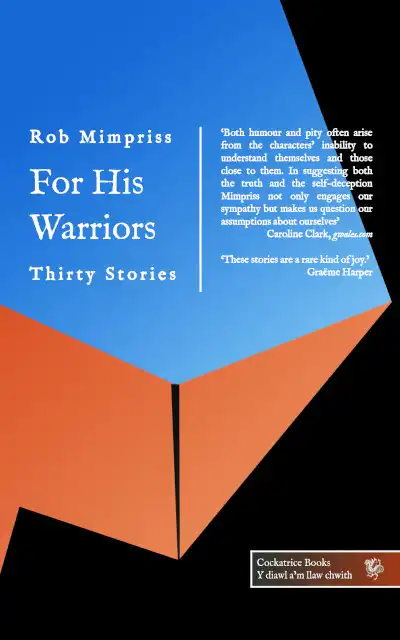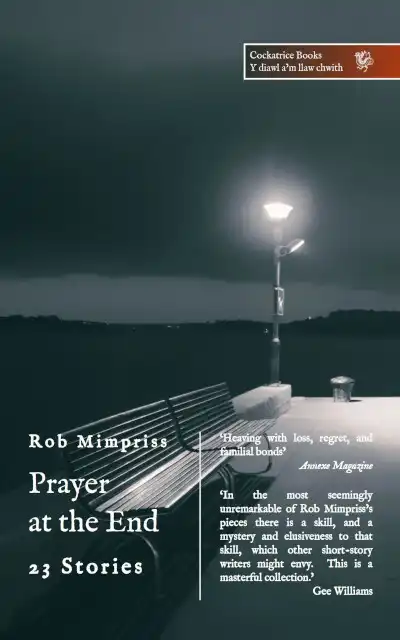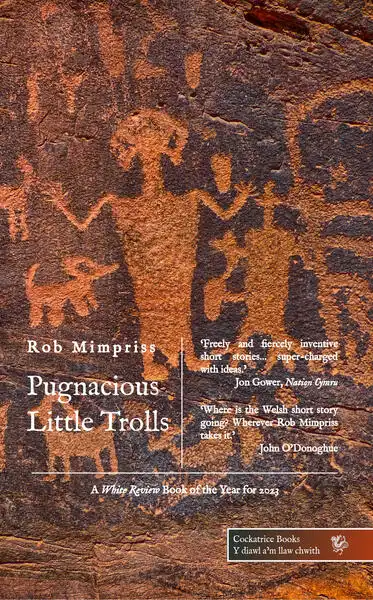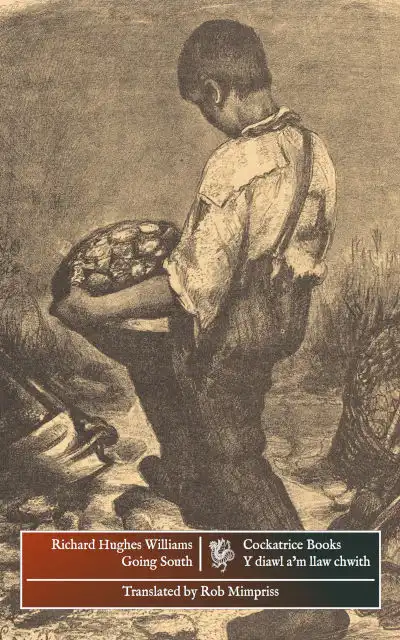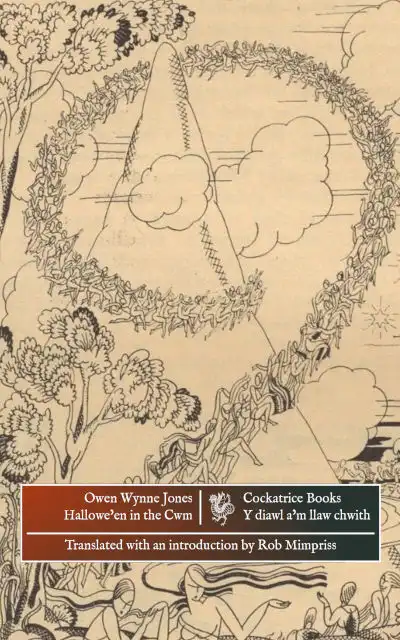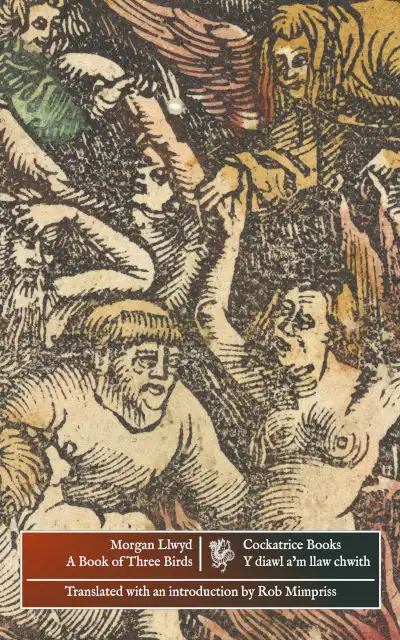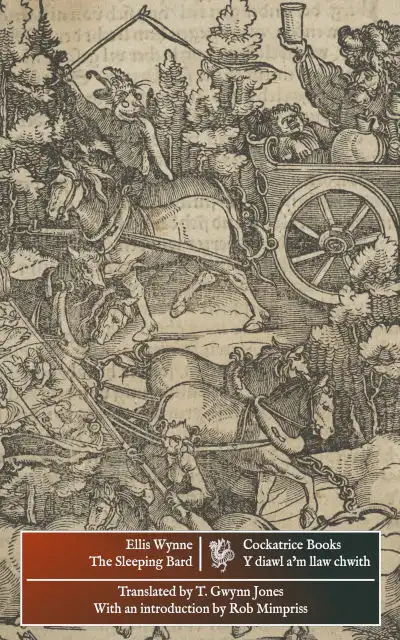Thomas Gwynn Jones (b. 1871, Betws yn Rhos, near Abergele; d. 1949), was a highly distinguished and influential poet, a translator from Irish, German, Norwegian, Latin, Greek and English into Welsh, and from Welsh into English, a novelist, playwright, critic, biographer and journalist. He was awarded the Chair at the National Eisteddfod in 1902 and received honorary doctorates from the University of Wales and the National University of Ireland. The short story below is taken from his sole short story collection, Brethyn Cartref (Caernarfon: Cwmni y Cyhoeddwyr Cymreig, 1913), and the translation is my own.
The great chimney stack was finished, one of the largest in the country. It was so high that to look up from the foot of it would make one dizzy.
The last of the scaffolding had been taken down, and only one man remained on the chimney top, one of those who can stand in such high places as easily as on the firm ground. He was still putting the lightning conductor in place, and had a rope running down the side of the chimney so he could climb down when he was finished.
The other workmen were at the bottom, clearing the scaffolding away, but now and again one of them would glance to the top of the chimney, shielding his eyes from the sun with his hand, to see how he was doing.
Eventually his task was finished. He got to his feet, stood at the edge of the chimney, waved his cap and shouted, ‘Hooray!’ The men at the bottom repeated ‘Hooray!’ and threw their caps in the air.
He had skill, this man at the top: indeed he had something of genius. He stood on one foot at the edge of the chimney, his other foot dangling over the edge, still waving his cap in one hand, the other resting at his side, not touching. Some of his mates at the bottom turned round to watch. It was as though he was challenging fate with his pranks. He saw that he was making them nervous, and laughed, and started dancing at the edge of the chimney, turning about its narrow rim, as nimble and unconcerned as a bird.
‘Careful, Wil!’ shouted one of his mates. ‘Careful, or you’ll fall!’
But Wil was in his element. He laughed again, and continued his pranks until his workmates felt sick at heart to watch him.
Suddenly his behaviour changed. He had knelt down to look down the chimney, and when he got to his feet he seemed shocked by the distance beneath him.
His voice drifted down to the ground: ‘Do something, lads! The rope’s fallen.’
There was no other way down. The scaffold would have to go back up. They called to Wil to sit tight, and began the task of bringing the timbers and ropes to the foot of the chimney.
Just then, people from the village began to amass nearby. News of the mishap had spread, and the people looked fearfully up to the top to see this man who had no means to get down. A woman with a young boy pushed his way through the crowd. Her anger was plain, but the sight of the man sitting quietly on the top, his legs dangling over the side, calmed her down.
‘Been playing the fool as usual, has he?’ she asked.
‘Yes, and the rope fell,’ said one of the workers nearby.
‘What are you going to do now, then?’ she asked.
‘Put the scaffolding up,’ said the man. ‘Not much else we can do, is there?’
The woman stood thoughtfully to the side.
She was his wife, and the boy was their son. The father was an itinerant labourer, and the boy did not attend school. When he saw what had happened to his father he had run home to fetch her, and the woman had come at once, though she saw there was little she could do but watch whatever happened to Wil on his chimney. Meanwhile the men were still busy raising the scaffold, muttering their resentment.
‘Bloody joker,’ said one.
‘Too right,’ said another. ‘He could easily lose his footing and fall.’
‘Serve him right if he did,’ said the first one darkly.
It was obvious she had been beautiful once. She had long, curly auburn hair, but its sheen had dulled from dirt and neglect. She had pretty blue eyes as well, but rimmed with the bruises her husband dealt her in his Saturday cups. Suddenly, the woman got to her feet, and gazed up at her husband high on his perch. She cupped her hands to her mouth, and shouted, ‘Wil! Wil!’
‘What is it?’ he said, leaning over the gap.
‘What socks have you got on?’
‘Those new wool ones.’
‘All right. Have you got a knife?’
Yes!’
‘Well, take off your shoes.’
The man took off his shoes, and threw them down, and they buried themselves in the sand at the foot of the chimney.
‘Now, take off your sock,’ said his wife.
The man took off his sock, but it was obvious he had no idea what was in the woman’s mind.
‘Now,’ she said, ‘take your knife, and undo the hem of your sock, and pull out the thread a little.’
Wil did so.
‘All right,’ said the woman. ‘Now, take your knife, and tie it to the end of the thread, and let it down over the side gently. Carefully this time, you fool.’
Wil did as she said, and slowly the knife slid down the side of the chimney towards the ground.
Meanwhile the woman called the boy, and said something to him. Immediately the boy took flight.
A few minutes later the knife touched the ground, the rest of the thread still in Wil’s hand on the chimney.
‘He’ll never pull up the rope with thin woollen thread like that,’ said one of his mates.
‘Maybe not,’ said the woman, ‘but wait.’
Just then the boy returned with a length of strong cord in his hand.
‘That’ll do all right,’ said the woman.
She undid the knife from the end of the thread, and tied the end of the cord in its place. Then she nodded her head, and called up to her husband:
‘Now, you bastard, pull up the cord!’
Furiously he pulled, not stopping until he had the end of the cord in his hand.
‘Now,’ said the woman, ‘where’s that rope?’
One of the workmen brought her the rope, and she tied the end of it to the cord.
‘Pull on this, asshole!’ she called, and Wil pulled the rope up again to the top of the chimney.
When he had hold of the rope, he got to his feet on top of the chimney again, danced about on the edge, stood again on one foot, with his cap in one hand and the rope in the other, and shouted:
‘Hurrah for the old lady!’
And the men at the bottom raised three cheers.
She stood on the timber, her arms folded and her face grave. Abruptly she raised her voice.
‘Wil,’ she said, ‘come down from there. It’s six times I’ve saved your life now, and I give you my word I will not do it again.’
Within two minutes he was gone from the chimney, and moments after that he was approaching his wife.
‘By God!’ he said. ‘I’m ashamed of myself for blacking your eyes, ashamed enough to die. I’ll never do it again; I take my oath.’
He rushed at her, threw his arms round her, and kissed her grimed face passionately.
His workmates stared at the two in amazement.

